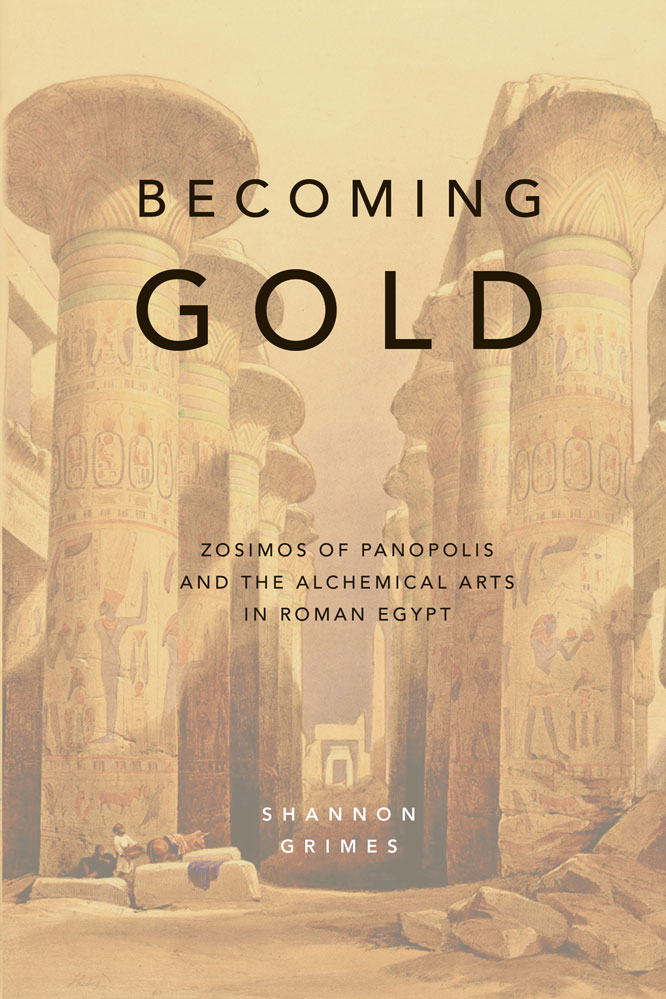Series Editor
Aaron Cheak, PhD
Peer-Review
Kyle Fraser, PhD
D. E. A. Burnham
The Panopolis Series
Critical Forays into the Hellenistic-Egyptian Alchemical World
THE PANOPOLIS SERIES is a new, peer-reviewed publication project focusing on the Egyptian and Hellenistic sources of the Byzantine, Islamicate, and European alchemical traditions. The principle purpose of this project is to provide translations of material previously unavailable in English, along with commentaries and dedicated studies.
The project takes its name from the birthplace of Zosimos of Panopolis, one of the most significant Egyptian alchemists from the Hellenistic period. Panopolis, the ninth nome of Upper Egypt, was originally known as Khent-min among the Pharaohs, Khemmis and Panopolis among the Greeks, and Akhmim among the Copts and Arabs. Panopolis thus alludes to an extremely rich nexus of historical and religious influences running through Egyptian, Greek, Hellenistic, Coptic, and Islamicate cultures—all of which impinge upon the history of alchemy. Given that Zosimos himself also encompasses a wide range of esoteric practices—from Hermetic, Gnostic, and apocryphal Judaic soteriologies, to operative alchemical practices proper, we thus enter a genuinely invigorating environment for investigating the origins and early development of alchemy.
While the project is not meant to limit itself to Zosimos exclusively, nor to Hellenistic alchemy alone, the figure of Zosimos alerts us to the presence of what we might call a ‘Panopolitan’ alchemical tradition, with its roots deep in the black earth of Upper Egypt—a southern Egyptian counterpart to the more famous centre of Alexandria in the North. Under the shadows of the divine temples, and extending down into Islamic times through figures such as Dhul-Nun, Panopolis remained a long-standing nucleus for a uniquely Egyptian Hermetic tradition.
Volume 1:
Becoming Gold: Zosimos of Panopolis
& the Alchemical Arts in Roman Egypt
by SHANNON GRIMES, PhD
December 2018
The first volume of the Panopolis Series began as a doctoral dissertation on Zosimus (Syracuse University, 2006). While some of the core material remains intact, much has been changed and expanded as Grimes’s research has taken new directions over the intervening years. This current work, Becoming Gold, has benefitted from a wave of scholarship on Græco-Egyptian alchemy in the past decade, as well as an influx of studies on Roman Egypt from many different disciplines, including socio-economics, politics, religion, art history, and archæology. Exploring the Egyptian roots of Zosimus’s life and work, Grimes concludes that ancient temple traditions of statue-making are absolutely critical for understanding Zosimus and the origins of alchemy.
Scholars have tended to gloss over the Egyptian contexts, largely because the literature is written in the language of Hellenistic nature philosophy, which obscures its Egyptian roots. And when Egyptian themes are explicit, they seem closer to the realm of legend—temple columns spontaneously cracking open to reveal alchemical secrets hidden inside, for example, or romanticised descriptions of the priesthood as keepers of secret and powerful knowledge, all of which were common tropes in Græco-Roman literature. But in Zosimus’s case, there is ample evidence to realistically conclude that he was indeed an Egyptian priest, and that his work was in line with ancient temple traditions.
About Shannon Grimes
Volume 2:
The Lexicon of Goldmaking:
A Key to the Græco-Egyptian Alchemical Corpus
Edited, with translation and commentary by
AARON CHEAK, PhD
Forthcoming
The second volume of the Panopolis Series is an annotated translation of the Lexikon kata stoicheion tēs chrysopoiias (Alphabetical Lexicon of Goldmaking), an arcane glossary of alchemical terms and substances which prefaced the manuscripts of the Greek Alchemical Corpus.
About Aaron Cheak

